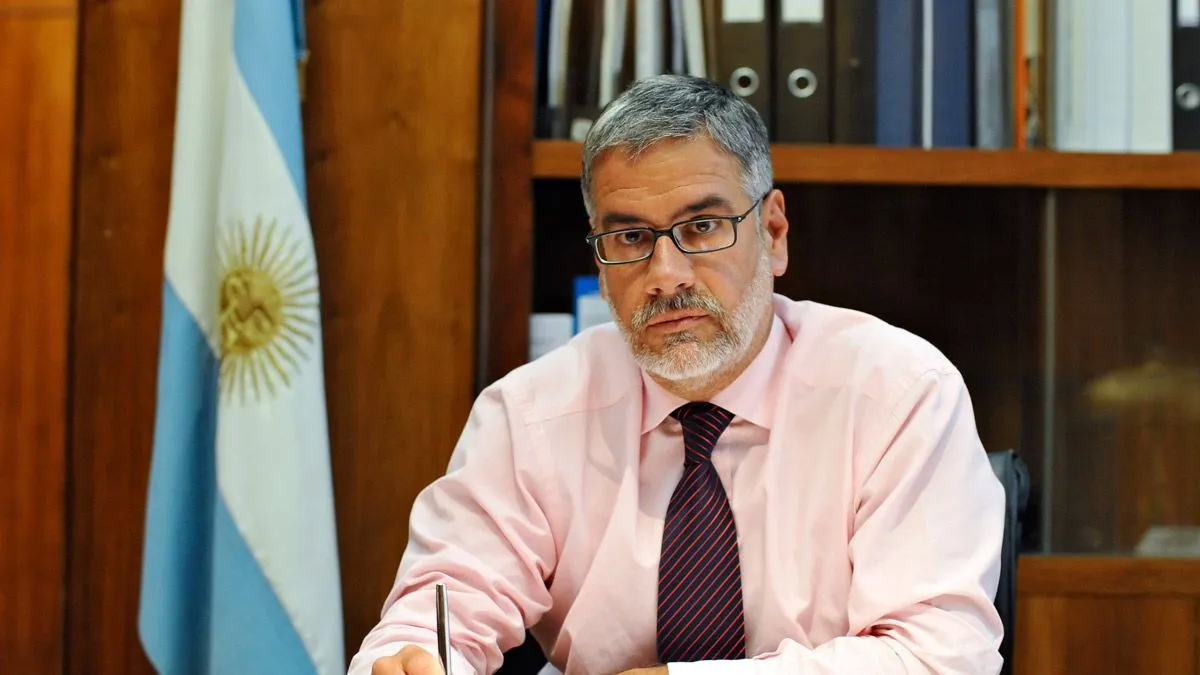discrepancies
After seven months of management, this Monday Feletti resigned: “They are discrepancies on the traced path and about the selected economic tools that today lead me to make this decision”, he wrote in the resignation letter that he presented to Alberto Fernández.
For Feletti, regulatory tools such as Care Prices or private trusts “became insufficient” with the war in Ukraine. “The current situation requires the development of new instruments, mainly in relation to the need to decouple the price of food at the world level of what we Argentines pay”, added who was deputy minister of Economy of Amado Boudou.
After replacing Paula Español in the middle of the legislative elections, Feletti presented Guzmán with a program to increase the retentions of meat, wheat and corn. He considered that it had a triple effect: stabilizing prices in the domestic market, increasing food consumption in the popular sectors, but also as a collection tool. “With the withholdings, Néstor Kirchner captured part of the agricultural income, paid the external debt and there were 10 years of macroeconomic stability”, he explained internally.
The differences over the retentions led him to confrontations with the ministers Guzmán, Matías Kulfas and Julián Domínguez. Without changes in export rights, the day the start-up of the wheat trust was announced, Feletti characterized the tool as “limited” and difficult to implement. It went live on Friday, two months after its launch. With historical international prices for wheat and corn, foods such as bread and cereals climbed 31.5% in the first quarteraccording to the Indec.
Guzmán adds allies
Apart from the retentions, other proposals that Feletti approached Guzmán fell by the wayside, such as the formation of a national food company or a crisis cabinet to evaluate the effects of the war. In his letter to the President, Feletti considered that Guzmán will have the “freedom” to elect officials who “share the established program.”
In this line, Guzmán put in his place Hang, also an economist from the University of La Plata, defined as “intimate” of the Minister of Economy. In December 2019, Guzmán had appointed him as an adviser, but later sent him to the Central Bank’s board. In October of last year, in the midst of the electoral campaign, Alberto Fernández summoned the governors to a great act to ask for compliance with the price freeze. Guzmán was unable to attend and sent Hang in his place.
Hang worked at the Ministry of Economy between 2008 and 2015. Those who know him say that ideologically he would be in favor of decoupling prices via retentions, but that he will work in tandem with Guzmán in management and discourse. For Guzmán, the solution to inflation will be through a “anchoring” of expectations as long as the economic program signed with the IMF is fulfilled.
After leaving the Ministry of Productive Development, the Secretariat of Domestic Trade will move forward with the Renewal of Care Prices, where they will seek a greater supply of the program in supermarkets, and a lower dispersion of prices with products outside the list, in nearby stores. Mass consumption companies await the call to learn about the new agenda. They will propose a greater increase in the list, of two digits, to maintain the agreement and the supply. The freezing of prices first, and the “escrache” for the increases later, had strained Feletti’s relations with the food companies.
Source: Ambito
David William is a talented author who has made a name for himself in the world of writing. He is a professional author who writes on a wide range of topics, from general interest to opinion news. David is currently working as a writer at 24 hours worlds where he brings his unique perspective and in-depth research to his articles, making them both informative and engaging.




